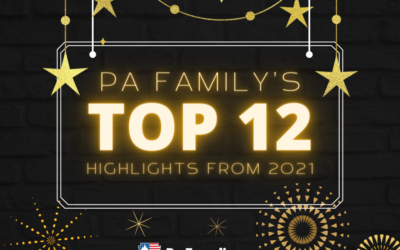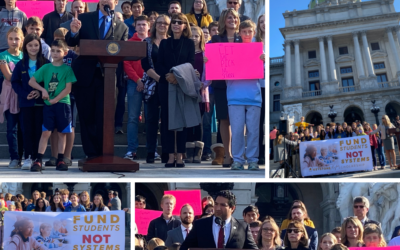Issue
Standards for Explicit Sexual Content in Schools
KEY POINTS
- School Boards are legally permitted to create policy setting standards for preventing age-inappropriate sexually explicit content in their curriculum and library.
- The standard ought not be: “As long as this book doesn’t land us in jail for giving it to a minor, the sexually explicit content is welcome in our curriculum or the school library.”
- Written policy protects students, parents, employees, and the school
and ensures better educational content will fill the finite space in curriculum and in libraries. - Schools should prioritize material that provides rich educational value over material that may provide similar value but also has age-inappropriate sexually explicit content.
- Age-Appropriate policies are not directed at viewpoint and are not banning the book from student possession. They are exercising the schools prerogative to determine what to include in its own library and curriculum.
Standards for Sexually Explicit Content in Schools
Schools must engage in line-drawing for age appropriateness of sexually explicit content in their library and curriculum. Criminal laws are one required line prohibiting schools from giving materials to minors in curriculum or library that a court deems pornographic or obscene. But what about sexually explicit content that does not rise to the extremely high bar of criminal law?
School boards are legally permitted to articulate standards that go beyond “would we land in jail for giving this book to a minor?” to prevent other age-inappropriate sexually explicit content in their curriculum and school library. Unfortunately, many schools have no policy standards for sexually explicit material beyond criminal law.
Schools with written age-appropriate standards for sexually explicit materials that differ for elementary, middle, and high schools protect students and ensures better educational content will fill the finite space in curriculum and in libraries.
But such written policies also protect the school’s staff and district from costly litigation. Even without written policy, a school librarian, principal, or school board is permitted to remove a particular title they deem age-inappropriate sexually explicit material. But with written policy standards, the school is less susceptible to baseless allegations that the title was removed for an impermissible viewpoint discriminatory reason.
School employees still have wide discretion to select and purchase books that comport with the age-appropriate standards in written policy set by the school board, and from that universe of materials, parents then have ultimate authority to make additional age-appropriate determinations for their own child and should have authority to restrict certain titles for their own child.
Individuals who desire to see sexually explicit materials in the hands of minors sometimes argue that such policies are “book bans.” Attempts at labeling common-sense school standards as “book bans” have been rejected by courts. See, C.K.-W. v. Wentzville R-IV Sch. Dist., 619 F.Supp. 3d 906, 909-910 (E.D. Mo. 2022) (“A school district does not ‘ban’ a book when, ‘through its authorized school board,’ it ‘decides not to continue possessing [a] book on its own library shelves.’”) Citing ACLU of Fla., Inc. v. Miami-Dade Cnty. Sch. Bd., 557 F.3d 1177, 1218 (11th Cir. 2009).
A parent, for example, who wants to buy sexually explicit books for their own child to read are not prevented from doing so by such school policies. School policies setting forth its own age-appropriate standards for sexually explicit content in its own curriculum and school library do not even prohibit a student from bringing their own book to school or from reading it in an appropriate time, such as study hall. But school districts do not have to put such explicit books in their own curriculum or in the school library, and such a decision by the school is not a ban on books.
Such policies treat inappropriate sexually explicit content the same regardless of whether the sexually explicit depictions or descriptions happen to be between straight, gay, or even a lone person. As such the argument made by those who desire to see sexually explicit materials in the hands of minors, that these policies are directed at LGBT people, is false.
Too many schools lack baseline standards regarding sexually explicit content in school libraries. Schools ought to spend the finite time in the day on academic excellence, and sexually explicit content detracts from that. Explicit sexual depictions and descriptions may sell, but refusal to purchase it is no ban. Districts can decide not to buy and stock sexually explicit content. If you are a school board member who desires to implement such a policy, we are glad to assist you.

Related Articles
Record Demand for School Choice in PA, Yet Majority of Students Denied Aid
The evidence is clear: Pennsylvania parents and students want more school choice options. And the state is failing to deliver financial help to the majority of these families. New data, thanks to Right-to-Know requests filed by the Commonwealth Foundation, reveals a...
PA Family’s Top 12 Highlights for 2021
Thanks to so many who partner with PA Family, this past year has been filled with incredible accomplishments and impactful initiatives. Here's a list of twelve highlights from 2021 that supporters from across Pennsylvania helped make possible: 1. Organized “the...
School Transparency Bill is Common-Sense. Gov. Wolf Says He’ll Veto It.
As school districts across the country have begun to implement potentially harmful curriculum for students, legislators in various states have taken the initiative to fight back against these measures and introduce bills that would put school districts on notice and...
Thank You for an Incredible Year!
The PA Family team has much to be extraordinarily grateful for this year – thanks to you. Through the ExtraGive event this past Friday, we raised nearly $100,000 – our largest year yet! And this was all thanks to you, our generous supporters, who commit to making...
God Belongs In Public Places: Why Religious Freedom Matters
A Conversation with Randall Wenger, Chief Counsel – Independence Law Center Randall Wenger has spent decades defending religious liberty. Whether it’s advising a parent on what to do with a school situation or gaining a religious liberty win for Lancaster County based...
How Parents and School Boards (and Churches) Should Work Together
A Conversation with Jeremy Samek, Senior Counsel “Parents Matter” was one storyline that defined the governor’s race in Virginia. Heated exchanges have been happening in school board meetings across the country (including Pennsylvania) dealing with issues ranging from...
PA Needs HB1: Empower Parents, Help More Students Achieve Excellence in Education
Pennsylvania Family Institute joins rally to call upon the PA General Assembly to pass the Excellent Education for All Act (HARRISBURG, PA) Pennsylvania Family Institute stands with PA State Representatives Andrew Lewis (R-Dauphin) and Joshua Kail...
Why I’m Voting Yes to Keep Executive Power in Check
By Michael Geer, PA Family President On Friday, March 6, 2020, Gov. Tom Wolf signed a 90-day emergency disaster declaration, giving him very broad, sweeping powers over day-to-day life in Pennsylvania. This emergency declaration was in response to an impending...








